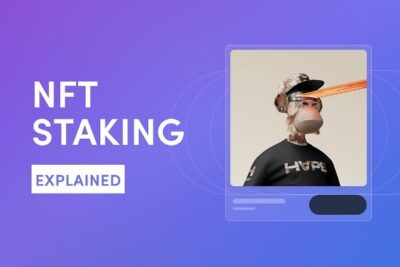

NFT Music And Its Effect On The Music Industry
30 May 2022
You may have been exposed to terms like “non-fungible tokens,” “cryptocurrency”, and “blockchain technology” in the past, but it’s likely that you didn’t think that terms had anything to do with the work that you do as a musician.
There is a possibility that we are on the cusp of a revolution in the manner in which artistic and cultural expression is monetized. It’s possible that NFTs will be the greatest game-changing invention to hit the music industry since streaming.
What is NFT music exactly? And why are they now seeing such a surge in popularity? Continue reading this bePAY blog post to learn what they are, why artists should be interested NFT marketplace, get started on how to sell NFT music, and how to determine whether they are the best option for you. All of them will be clarified in this insightful post.
What Is NFT Music?
NFTs are digital tokens that are maintained on a blockchain and may be used to record the ownership of assets such as music. On the surface, music NFTs may seem to be an alternative to purchasing tunes on a traditional site like iTunes.
However, there is a significant distinction: when you buy music, you only obtain the right to listen to the songs you’ve purchased. Alternatively, when you purchase NFT music, you also obtain ownership of the track. This allows you to sell or exchange NFT music tokens on public markets.
In addition, NFT markets let artists receive royalties on future sales of their non-fungible tokens. This implies that whenever music NFT is sold, the token’s author will earn a percentage of the transaction fee.
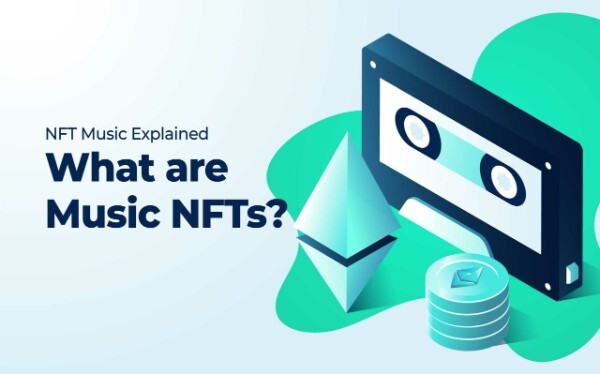
What is NFT music?
How Does NFT Music Work?
Unique assets that are stored and exchanged on a blockchain. They are unchangeable, scarce, and provable by the public. In the music industry, artists may offer restricted digital material to their followers for cryptocurrency. You are now able to create music material that cannot be replicated.
What is its intended purpose?
While there are no specific guidelines for the relationship, up-and-coming artists may learn from how established artists have used NFTs. These consist of:
- The album launches
The famous American singer 3LAU sold his tokenized record for almost $11 million in February. Although this sales amount may be an anomaly, other artists may learn from it. On-chain sales of limited quantities of your record may generate unique material in a whimsical manner. In addition, artists get a portion of every secondary sale of NFTs.
- Beat Selling
As music NFTs, producers may now sell beats straight to purchasers. Due to the immutability of NFTs, end-users may acquire these beats on-chain, utilize them flawlessly, and resell them for a profit. On every resale, music creators are paid a royalty.
- Merch Sales
On-chain merchandising is possible for both virtual and real goods. Anyone may purchase and resell these items. And as is customary, artists get a percentage of any secondary sales.
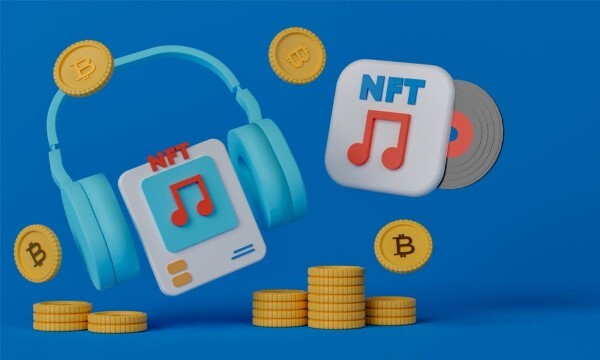
How does NFT music work?
- Distribution plan of the stock-type
Untested, this is another manner in which NFTs may aid the music business. Imagine selling 20% of your future album’s rights as non-financial tokens. This implies that in addition to on-chain money, fans holding NFTs may receive a portion of the off-chain revenue produced by your music, including streaming, TV collaborations, and merchandise sales.
Consider it a tokenized stock certificate that confers ownership rights over the record. In this manner, you will cultivate a thriving ecosystem around your work, which will benefit both you and your most devoted admirers. In addition, holders receive access to additional features such as front-row seating, special performances, listening parties, etc.
How To Create And Sell NFT Music?
Here are the most important requirements for dropping an NFT:
How To Make NFT Music?
Create excellent content based on an excellent idea
If you have a stunning resource, make sure your content is outstanding before going on to the next phase.
>> If you enjoy further use cases of NFT and be curious about NFTs other than just how to make NFT Music, here is a guide on how to make NFTs by yourself
How To Sell NFT Music?
- Acquire a “wallet”
This is the web application you will use to access your cryptocurrencies, NFTs, etc. A “wallet” is a digital location for storing bitcoin, as well as confidential information necessary to authenticate transactions. Some wallets, such as Bitcoin wallets, only support a single cryptocurrency, while others support numerous cryptocurrencies.
MetaMask (available on mobile devices and as a Chrome plugin) provides a safe means of accessing Blockchain-based apps. Moreover, this is how you will be compensated for your NFT sales!
Just be sure to conduct your homework before selecting a wallet. Also, make careful to get it from the right official location, since there are scammers that deceive individuals into completing a fake enrollment process.
- Acquire some cryptocurrencies
You will need some to pay the gas costs associated with minting your NFT. Which cryptocurrency you need to begin your NFT depends on the blockchain you pick. Referring to the next step.
- Choose a blockchain
Yes, certain cross-chain or Omni-chain NFTs may be bought and transferred across several blockchains, however, the vast majority of NFTs exist on a single blockchain. Conduct research. Consider gas costs and usability, and choose what is best for you and your target audience. You’ll also need to select an NFT Exchange.
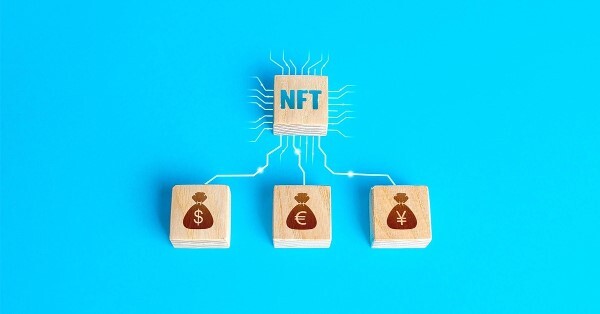
How to sell NFT music?
- Select an NFT Exchange
You must decide where to list your NFT. As with cryptocurrencies, there are several possibilities; thus, a study is required. Again, marketplaces are often associated with certain blockchains, so be sure to choose the appropriate one.
- Determine the amount and rarity of your NFT
Now choose the quantity of this NFT item you want to make accessible. Keep in mind that restricted is the name of the game. Unique items are always a possibility. After setting the amount of NFT, the next stage is their price.
- Indicate the selling price
On a site like OpenSea, someone may submit a lower offer if your NFTs do not sell at the asking price. It is up to you to decide whether you will accept or reject the offer. You may also opt to conduct auction-style sales in which buyers outbid one another.
You should also be aware that the cost to “mine” these tokens are paid (by you) in cryptocurrency when the actual sale of the NFT occurs.
- Advertise your NFTs
If you use an NFT hashtag on Twitter, I would not anticipate a pod of whales (crypto-rich individuals) visiting you. You are going to have to put in some effort. Explain to your audience why this initiative is important to you, generate enthusiasm, and instruct them on how to purchase your NFT.
NFT Music Marketplace Situation
Even though the biggest NFT marketplace, OpenSea, has a dedicated library for music NFTs, the vast majority of musicians choose to start on music-specific platforms.
A catalog is a principal marketplace for 1/1 music NFTs, also known as single-edition music NFTs. It is based on the Zora protocol, which also runs the OpenSea marketplace of the same name. Artists have sold $2 million worth of music NFTs on Catalog as of February 2021.
In contrast to 1/1s, some artists want to create limited editions, such as 10 NFTs attached to a single tune. Sound.xyz, which offers virtually daily drops where collectors or dealers may get mint versions of music NFT, is a popular choice for this purpose. These newly issued NFTs are instantly resalable on secondary markets such as OpenSea and Rarible.
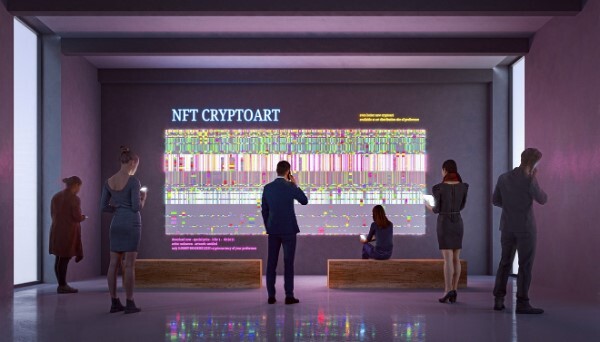
NFT music marketplace situation
Foundation, Arpeggi, and FormFunction are other systems that allow artists to mint 1/1s.
Different platforms specialize in certain music genres. Groovetime caters to dance music NFTs, while HEAT is an upcoming platform. Beat Foundry permits the production of generative music, a genre incorporating human-computer interactions.
>> See more top best NFT Marketplace
Why Should Musicians Care About NFT Music?
So, what exactly does this imply for the music business as a whole? NFTs, more than anything else, have the potential to alter the connection that exists between artists and the audience that support them. There is now the possibility of a direct transaction taking place between the individuals who create music and the people who listen to it; this transaction does not include a record label, distributor, streaming site, or social media platform.
Let’s take a closer look at what it implies by breaking it down into its component parts.
Your Fans Have The Ability To Invest In Your Career
Because of the way things are now in the music business, you, as an artist, have extremely limited options to gather information about the people that listen to your music. You can get some basic information about Spotify users by looking at the number of streams and other data, but you won’t learn too lot else about the individuals who contribute to those figures.
Your most devoted supporter will be able to demonstrate their devotion to you via the use of NFTs by making an investment in your professional endeavours.
If you are an upcoming artist, you should provide your supporters with the chance to share with you how much faith they have in your ability to achieve success in the future. They have the ability to purchase your NFT right now on the expectation that if you go bankrupt, it will be worth a great deal more in the future.
Another thing to consider is that if someone buys an NFT from a lesser-known artist, it is quite probable that they will do all in their power to promote that artist and assist in their development in order to increase the value of the NFT that they have purchased from that artist. This is clearly beneficial for the artist, and it has the potential to attract more consumers of NFT in the future, so generating a positive feedback loop.
Lastly, you may use NFTs as a potential funding source for your subsequent project. If you want to release an album but aren’t sure how you’ll pay for it, you may raise money for it by selling non-fungible tokens (NFTs), which is similar to running a campaign on Kickstarter to do so.
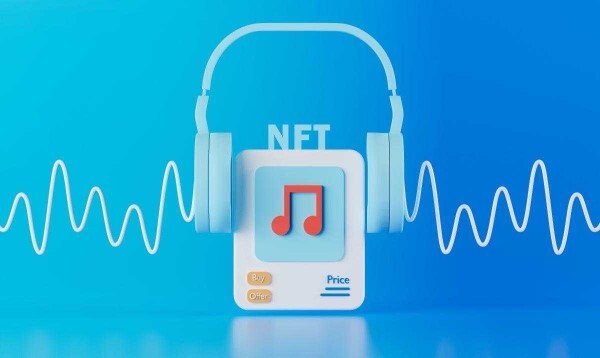
How do music NFTs affect the music industry?
You May Provide Followers Unique Bonuses
It is reasonable that many individuals would be somewhat reluctant to spend a considerable amount of money for ownership of an intangible asset given that NFTs are still a relatively new idea. This is something that can be clarified with more discussion. Because of this, a lot of artists are starting to make NFTs that feature their digital product as well as a unique bonus or experience that consumers may use in the real world if they want to do so.
For instance, the band Kings of Leon has issued a non-fungible token (NFT) that comes with their newest album and also grants the purchaser four front-row tickets and a VIP experience at each performance the band performs in the future for the rest of the token holder’s life. One of the NFTs that 3LAU offers is the possibility for the holder of the token to collaborate with 3LAU on the creation of a unique song and provide creative guidance.
These privileges serve as a powerful incentive for individuals to acquire and maintain their holdings of NFTs. When the NFT is resold in the aftermarket, these conditions are likewise transferred to the subsequent purchaser.
There Is The Possibility Of You Making A Larger Profit
It is common knowledge that a typical artist is unable to earn a livelihood off of the income from streaming services alone. In general, musicians only take home an average of 12% of the revenues produced from their music sales. This is true throughout the whole business.
NFTs provide musicians with the opportunity to do business with their followers on an individual level and enable them to retain the vast majority of the revenue generated from their work. Your revenues would, of course, be heavily influenced by the value of your NFTs as well as the number of individuals who purchase them; nevertheless, in any event, it is likely to be more lucrative than the $0.0032 per stream that you would get from Spotify.
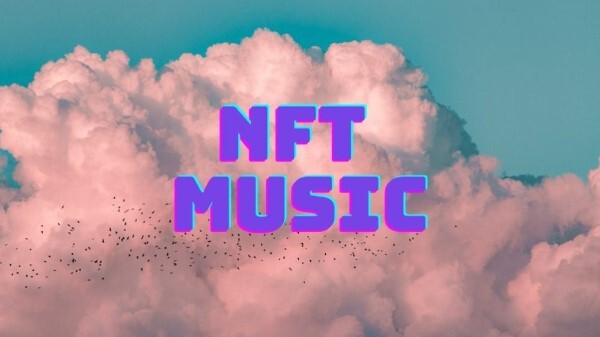
NFT music
You also have the option of selling your NFTs at a predetermined price, or you may hold an auction instead. Either way, there is a chance that this will result in a greater profit for you. Imagine you have 500 devoted followers who want to support your profession and have the financial wherewithal to do so. You have created 10 highly-coveted NFTs that come with special bonuses. It is very possible that your auction may evolve into a bidding war, which will cause the price of each NFT to increase. That was the precise method that 3LAU used to make $12 million in a single night.
Finally, while you are configuring your NFTs, you will have the option to collect royalties each time an NFT is sold to a new token holder. This option is available to you when you set up your NFTs. 10% commission on all future sales for the foreseeable future? Not too awful.
FAQs About NFT Music
Can A Song Qualify As An NFT?
Yes, a song may be bought in audio or video format with a music NFT token.
Is Copying An NFT Illegal?
Copying non-fungible tokens are prohibited under copyright laws designed to protect original owners and artists. If the copyist profits from another person’s work without their knowledge or permission or passes it off as their own, this is considered a violation of the author’s copyright.
Are Investments In Music NFTs A Good Idea?
NFTs are seen by many as a potentially successful alternative to the established order of the music business, which is controlled by large record companies.
NFTs may be beneficial to musicians in many different ways. They can give more control over the dissemination of their music, and they can also help musicians develop an income stream that comes from selling their music directly to fans.
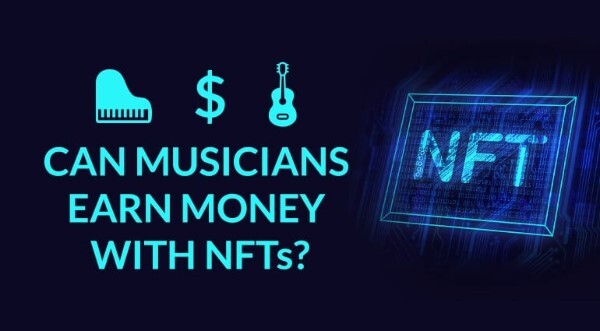
Making money with NFT music
Before you make the decision to purchase NFT music tokens, there are, however, a few more things to think about from the perspective of an investor.
Let’s take a look at the factors that contribute to the success of music NFTs as an investment.
- Secured blockchain
- Support your favorite artists
- Divertise your portfolios
Final Thoughts
Although the NFT field is very young, it is still unclear how labels, music industry technologists, and enterprises will advance. Nonetheless, it is evident that they contain potential.
NFTs have made a tremendous impression, producing a ripple effect seen across the IT, banking, and creative sectors. Yet, the music business alone appears to be giving the most enlightening litmus test for how blockchain technology may promote co-creation and co-ownership of intellectual property.

Top Best NFT Lands For Sale 2022
15 July 2022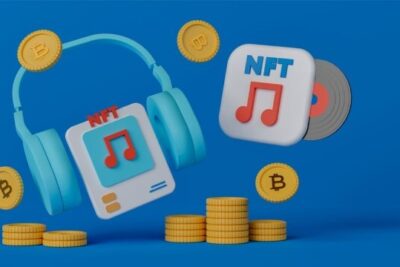

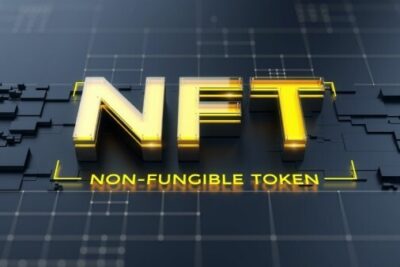
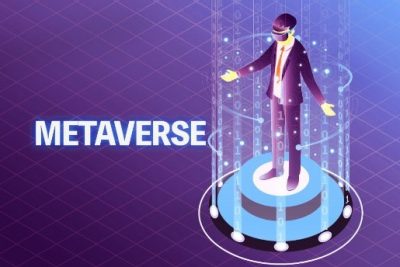
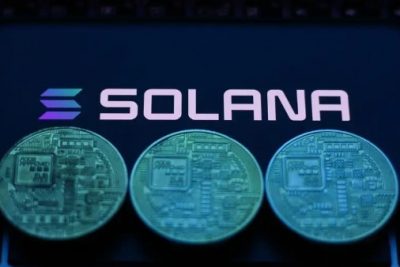
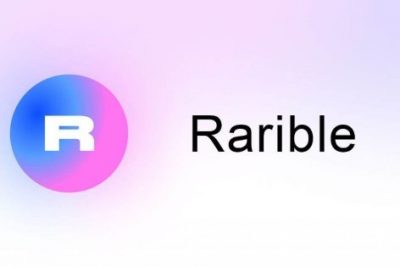
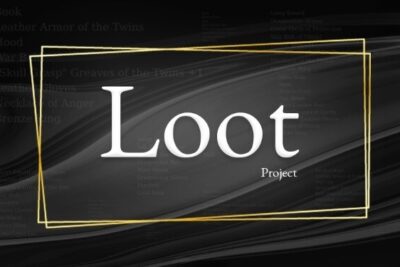


![[Updated] Top 15 Most Expensive NFT 2022 And Market Overview](https://bepay.finance/wp-content/uploads/2022/06/most-expensive-nft-1-400x258.jpg)
